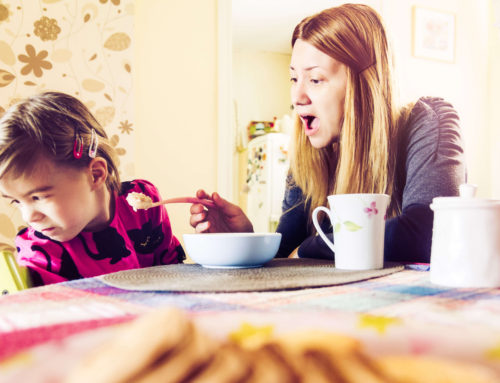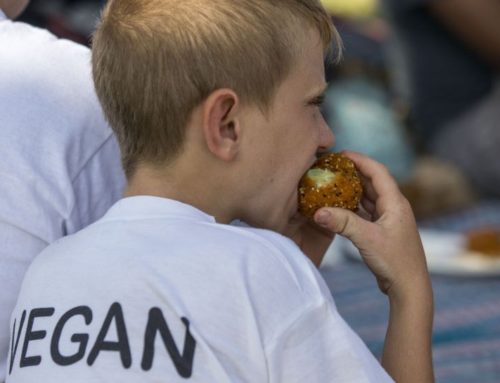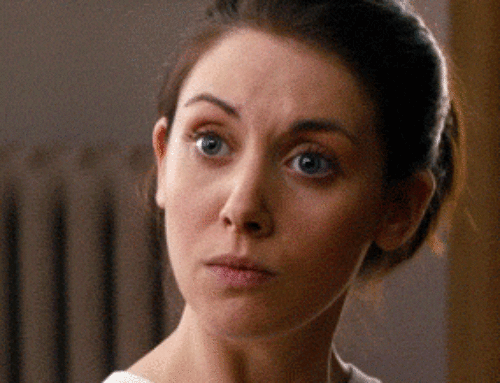From Mommyish, 11/2019
Heads up, all you fundamentalists who fear the War on Christmas, you have some surprising allies: a small number secular half-Jews and our offspring, even if we’re not exactly celebrating the same holiday you are.
I grew up in a household where my Jewish dad bought the Christmas tree, and my Catholic mom put on cheesy Hanukkah records while we decorated it. My husband, a reform Jew with a non-Jewish maternal grandmother, also has fond Yuletide memories (and fine, many of those took place at a yoga ashram in the Bahamas, but who’s counting religions?). We’ve decided that our son will be raised Jewish, but I am absolutely firm on this Christmas thing. Because it’s just more fun that way.
We could have easily gone the other way. After being raised in the South, we both suffered through the annoyance of everyone assuming we were Christian. My dad used to harrumph, “Happy Hanukkah to you,” every time a cashier or someone wished him a Merry Christmas. But then he’d totally let my mom relegate small gifts to the eight days of Hanukkah and leave the big-ticket items up to Santa. Actually, I’m pretty sure Santa Claus was possibly the closest I ever got to unquestioning faith.
My sister and I did the whole thing: Macy’s visits to sit on Santa’s lap, carefully handwritten letters of our wishes, cookies and milk left out for him at night. My mother wrote the gift tags in different handwriting and sometimes typed out letters of reply on an actual typewriter to maintain the illusion of an unseen visitor delivering our presents. With a sister four years younger than me, I held on to the practice long after I was too old for it, and I enjoyed every minute.
What did I actually believe back then? It’s hard to put together a picture of my mind before the truth leaked in. I knew the impossibility of it — the time-space paradox, the vast number of children involved, the unfairness to children who didn’t celebrate Christmas, our lack of chimney, the weird coincidence of him getting everything right despite the fact that the list couldn’t have possibly gotten to him in time. I think it was sheer force of will that I could hold that knowledge in my mind and still be thrilled on Christmas Eve when someone would say they could hear the reindeer’s bells outside. Magic was real because I wanted it to be, and because I was a mostly good girl that year. Is that how other people feel about God?
The history of St. Nicholas is fascinating. He was a third century Turkish bishop who was said to have rescued three girls from prostitution by giving them bags of gold to get their father out of debt. For centuries in the Middle Ages, children received gifts on his birthday, December 6. (The circuitous way he fell out of favor and then was resurrected in his jolly North Pole image is recounted here.) To make a long story short, however, it was 19th century literature that created his current myth, and I feel like he’s a long way from having any religious connotation whatsoever these days. Thanks to Macy’s and Coca-Cola, you may say he’s the patron saint of mass consumerism and obesity. I think it’s entirely up to us as parents to make him something better.
In my wholly secular version of Christmas, the holiday is Thanksgiving with better decorations, plus the ritual of giving each other tokens of our love. By extension, I guess Santa is the symbol of a more universal love that comes from outside the family. To me, he can be the being to whom children are accountable for their naughty and nice actions of the year and a magical figure of infinite generosity. Santa gives to everyone, so you can give to others too.
My son’s still too young to learn anything about Santa, though I think he’ll probably really dig the reindeer this year. When the time comes, I can’t wait to see him look with fear and wonder at a mall Santa, then focus all his hope on a handwritten letter. It’s going to be so much fun to hear him wake up too early on Christmas morning to see if his wishes have come true.
(Image: Shutterstock)





